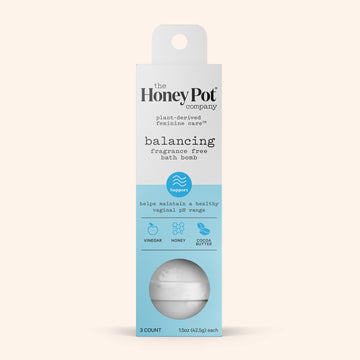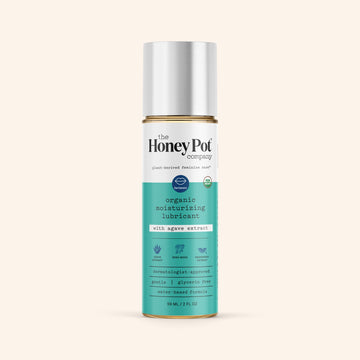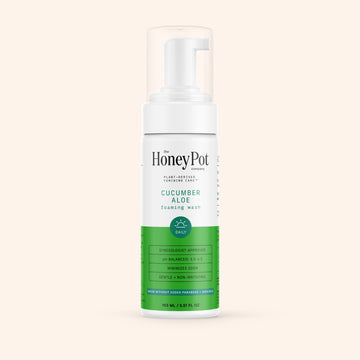
Wellness
Pelvic Floor Strength and Mobility
Hello, my name is Rachel Nicks and I am a trainer, doula, lactation counselor, actor, the founder/CEO of Birth Queen, and mama of 2. I have to confess the pelvic floor is my favorite muscle group. As a trainer and doula, I quickly learned the importance of the pelvic floor and became obsessed with teaching everyone about it. It is the foundation of our strength and holds all of our reproductive organs inside our body. It’s imperative to understand the function of your pelvic floor to build strength, potentially give birth to a baby, and have ultimate pleasure. Over my 13 years as a trainer and 9 years as a doula I have taught people, men and women, about their pelvic floor and truly changed their lives.
Still wondering why the pelvic floor is my fave muscle group?
Sis, it holds the contents of our purses. We ain't got time for things falling out of our purses!
What is the pelvic floor?
The pelvic floor is a group of muscles and connective tissues attached to the bones at the bottom of your pelvis. If you could look down vertically in-between your hip bones, you would see the pelvic floor muscles at the bottom (floor!) of your pelvis.
What does your pelvic floor do?
Your pelvic floor is working 24/7, and some of its job duties may surprise you. Pelvic floor muscles act like a hammock supporting your bladder, colon, rectum, vagina, cervix and uterus. Working in unison with your hip muscles, your lumbar spine and your diaphragm, pelvic floor muscles stabilize your hips and trunk, helping you to stand upright, walk and shimmy.
Need help finding your pelvic floor muscles?
Let's start from the inside out with the bone structure. Our pelvis houses the pelvic floor muscles. We have three layers to the pelvic floor. Next time you are in the bathroom or shower I want you to insert your index finger into your vagina.
- EXHALE: engage and lift all three layers of your pelvic floor. You should feel a closing, tightening, and lifting from the base of your finger to the tip.
- INHALE: relax, release, and lower all three layers. The strength and mobility of your pelvic floor are equally important.
The strength of the pelvic floor gives the ability to strengthen orgasms and hold in urine and organs inside of your body. Mobility allows the body to release urine, push out a baby without tearing, and allow partners or toys to enter body with ease and pleasure
We don't want to close the golden gates upon entrance or exit

What causes the pelvic floor to change?
- Gravity - Over time gravity can stretch your muscles and make them more lax, which can increase your risk of incontinence.
- Pregnancy – The weight of baby and vaginal birth stretches your pelvic floor muscles.
- Age - With age comes changes. Stress and gravity over time will make muscles more lax. That is why doing your kegels is so important.
- Genes – Some humans have more laxity in our fascia, others are more taught.
Between 75-81% of people who enter assisted living facilities are incontinent. When I learned this, I was frustrated because this number could be far lower if we teach people about their pelvic floor and exercises at a younger age.
There are women who deal with incontinence that are not mothers but begin feeling effects of stress incontinence usually around their late 30s early 40s. If you are a runner or do high impact exercises, that adds stress to your pelvic floor and increases your chances for incontinence if you aren't properly engaging your muscles.
What can I do to strengthen and improve?
Go see a pelvic floor therapist to know what your exact needs are. Some of us need to work on strengthening our pelvic floor muscles and others need to work on relaxing and stretching. We often discuss weak pelvic floors which can lead to incontinence and prolapse, when organs distend out of the body.
However, there are also women who have overactive muscles and can suffer from vaginismus. Vaginismus is when the muscles of a woman’s vagina squeeze or spasm when something is entering it, like a tampon or a penis.
A pelvic floor therapist can give you a thorough evaluation of your pelvic floor. They examine your body from the outside and inside and can prescribe exercises to help you either strengthen or relax your pelvic floor muscles. We have vaginal and anal muscles and sometimes these muscles of the pelvic floor are tight or loose. I will share basic exercises for everyone, but it is important to get a detailed understanding of your own pelvic floor health.
Exercises:
1. EXHALE : Engage your pelvic floor. INHALE: Relax and Release Repeat
2. EXHALE: Engage and hold 10 seconds. Release in INHALE. Repeat 10x
3. BLINK
- EXHALE: Engage.
- INHALE: release.
- Repeat 20-40 times only go as fast as you can fully engage and fully release.
- EXHALE: engage layer 1-2-3
- INHALE: release layer 3-2-1
- Repeat 5-10 times
Try to do exercises at least 3 times a week.
Most important thing to remember is EXHALE ENGAGE.
You are not alone in your pelvic floor journey. The Honey Pot is here to support you if you are dealing with incontinence, dryness or vulva sensitivity.
Incontinence pads give you a layer of protection and are designed to capture urinary leaks when they happen. The Honey Pot has herbal and non-herbal options that are hypoallergenic & dermatologist tested. They are made with a 100% organic cotton cover & ultra-absorbent pulp core.
If you are dealing with dryness, tight pelvic floor muscles or scar tissue postpartum, try incorporating lubricant for comfort and pleasure during intercourse and masturbation. The Honey Pot has water-based and hybrid silicone options. In addition, add to your pleasure with the Vulva Stim Serum for enhanced sexual stimulation, increased blood flow and pleasure.
For more information about the pelvic floor or to find a culturally competent healthcare provider, visit our partner Health in Her HUE®. Health in Her HUE® is a digital network of culturally sensitive healthcare providers, evidence-based health content, and community support.







